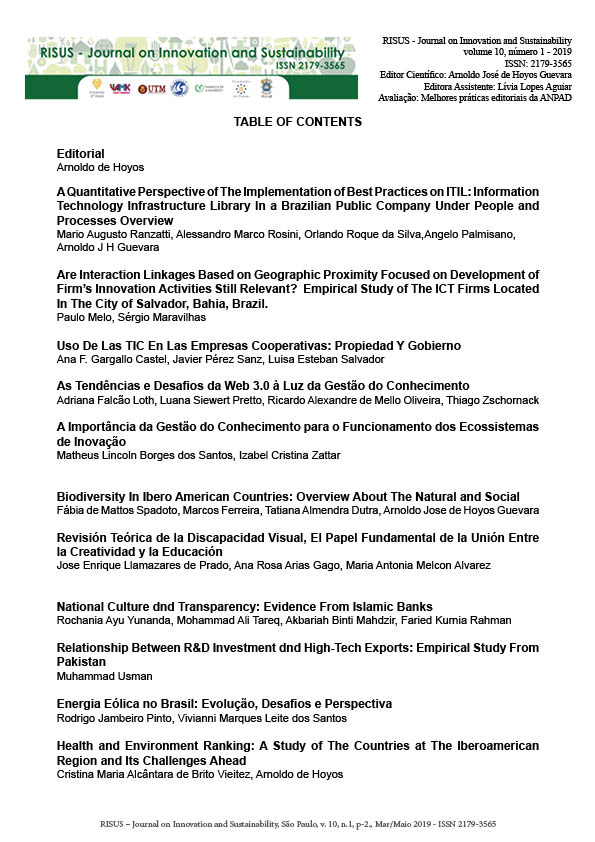THE IMPORTANCE OF KNOWLEDGE MANAGEMENT FOR THE FUNCTIONING OF INNOVATION ECOSYSTEMS
DOI:
https://doi.org/10.24212/2179-3565.2019v10i1p48-56Keywords:
Ecosystems of Innovation, knowledge-based economy, knowledge management.Abstract
Innovation ecosystems can be understood as complex networks of interaction, where different agents organize to cooperate and compete in search of innovation. These arrangements can contribute significantly to the socio-economic and technological development of its members and the region in which they are inserted. Knowledge management, in turn, seeks to harness the resources generated by knowledge. The integration between research centers, universities, entrepreneurs and companies and other agents of an ecosystem of innovation ends up creating a flow of knowledge in these environments, and knowledge management is an indispensable strategy for these spaces. With the objective of the study of the art of the ecosystems of innovation, a search of scientific works with this subject was carried out and afterwards the categorization of the articles found. During the categorization, it was identified that a group of works dealt with the relationship between knowledge management and these environments. When analyzing and discussing these works, it was identified that knowledge management is essential for the maintenance of these spaces; in order to reduce the complexity of these environments; to the search of problems that generate inputs for the creation of innovation. Uncertainty, ambiguity and complexity are the main problems identified for the management of knowledge in these spaces. In knowledge management, one must seek the acquisition of information to reduce uncertainty, increase the capacity of knowledge absorption and the decomposition of knowledge to minimize complexity and, finally, to structure circulating knowledge to reduce ambiguity. In addition, the creation of a knowledge production system that contributes to the governance and the increase of the intellectual capital that supports the development of the ecosystems is emphasized. Finally, it was concluded that knowledge management is a fundamental strategy for the functioning of innovation ecosystems and the socio-economic and technological development of its members.Downloads
Published
2019-03-12
Issue
Section
Papers
License
This Journal is licensed under a Creative Commons Attribution-Non Commercial-No Derivers 4.0 International license.
1.The author (s) authorize the publication of the article in the journal;
2.The author (s) warrant that the contribution is original and unpublished and is not in the process of being evaluated in other journal (s);
3. The journal is not responsible for the opinions, ideas and concepts emitted in the texts, as they are the sole responsibility of its author (s);
4. The editors are entitled to make textual adjustments and to adapt the articles to the standards of publication.


